Scottish teachers announce 16 new strike dates
- Published
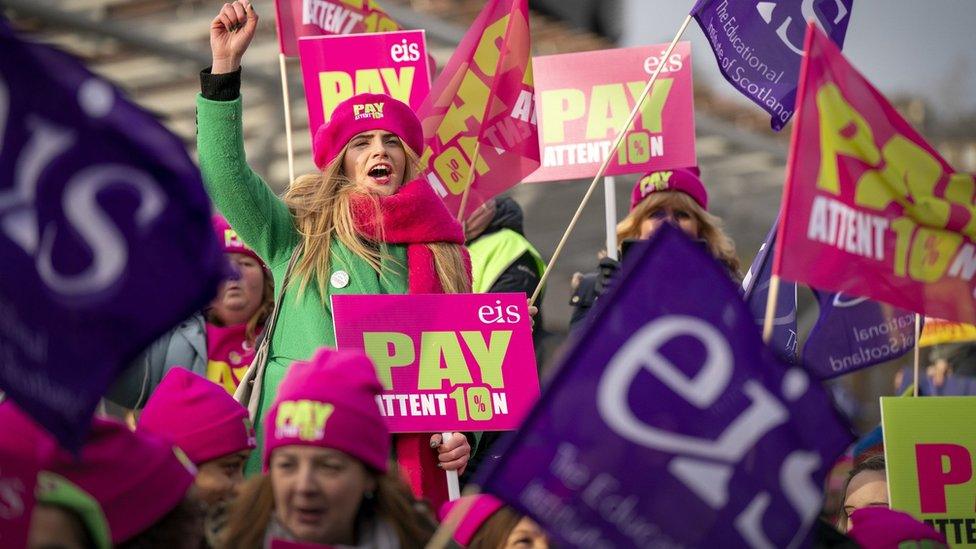
Teachers in Scotland will strike on a further 16 days in a dispute over pay, a union has confirmed.
The Educational Institute of Scotland (EIS) said the consecutive days of action - split across every council in the country - would take place in January and February next year.
Teachers in two local authorities will strike on each of the 16 days.
The union's general secretary Andrea Bradley said members had been "forced to escalate" measures.
A strike on Thursday closed nearly every primary and secondary school in the country, and many council nurseries.
A revised pay offer put to unions on Tuesday was rejected as "insulting".
But Education Secretary Shirley-Anne Somerville said their demand for a 10% pay rise was "unaffordable".
A new pay offer from employer Cosla - which would see rises of up to 6.85% for the lowest paid - was fair, Ms Somerville said.
Budget 'fixed and committed'
She added: "Strikes are in no-one's interest and we continue to engage with the unions to find a resolution.
"I recognise the strength of feeling within the unions but they also need to recognise that the Scottish government budget is fixed and is already committed. Any new money for teacher pay would have to come from elsewhere in education."
One parent in Edinburgh told the BBC he was concerned about his son who is about to take exams.
He said: "I think it's a difficult year. There's a lot of strikes about and you've got to give some sympathy for them but it's probably not the best time with them coming up to the prelims."
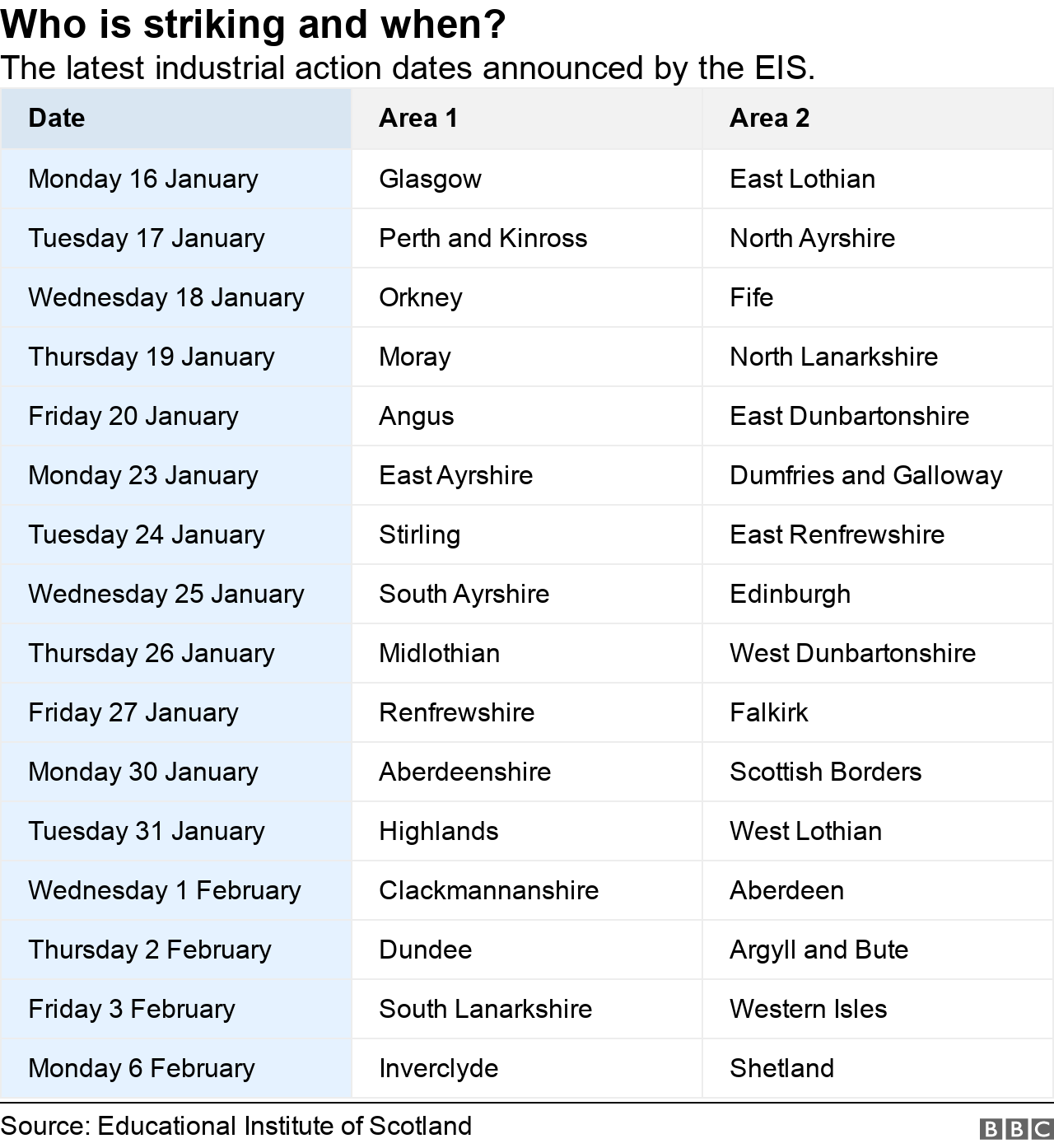
The EIS had already announced further action on 10 and 11 January, with the latest dates taking place between 16 January and 6 February.
Meanwhile the Scottish Secondary Teachers' Association (SSTA) and the NASUWT plan to strike on 7 and 8 December.
Ms Bradley said: "We have been forced into the escalation of this action by the lack of willingness to negotiate properly and to pay teachers properly, by a government that says it wished to be judged on its record on education.
"The judgement of Scotland's teachers on the matter of pay is clear, with the first programme of national strike action that we have engaged in for four decades.
"It is now for the Scottish government and Cosla to resolve this dispute, and prevent further strike action, by coming back to the negotiating table with a substantially improved pay offer for all of Scotland's teaching professionals."


This is a significant threat by the EIS.
But so is the fact that it won't be holding any more strikes until January.
The union hopes the mere threat of a further round of widespread industrial action in schools will lead to a pay deal.
Then again, it had hoped Thursday's national strike would not have been necessary.
As things stand, every state school in the country is facing the prospect of two more EIS strikes in the New Year.
First there will be another national strike but it will be spread over two days - one day will target primaries, the other secondaries.
Then in the following weeks every school in each council area will face one strike.
Over the course of the action, each school will face the same level of EIS disruption. There is no sense of individual schools or areas being targeted, unlike the action in the 1980s which singled out some schools in the constituencies of government ministers.

Unions had rejected earlier pay offers of 5% before employer Cosla made its new offer on Tuesday in a last-ditch attempt to delay the strike.
It offered all teachers on the main pay scales either a 5% pay rise or a £1,926 increase in their salary - whichever resulted in the greatest increase in their annual salary.
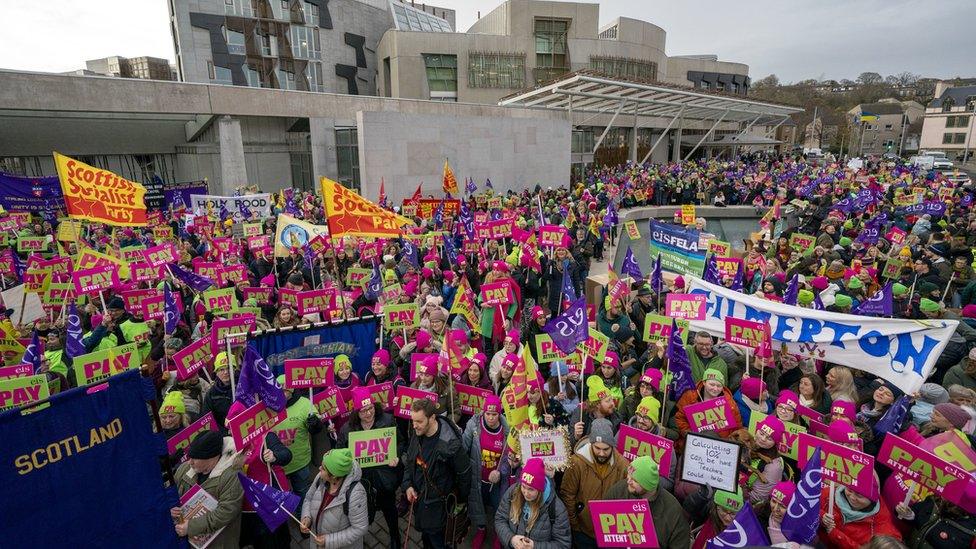
Hundreds of teachers joined a rally outside the Scottish Parliament as part of the national strike over pay
However, the uplift was capped at £3,000 for those earning more than £60,000.
The EIS said this was unfair on people earning higher salaries who would receive a pay rise worth less than 5%.
Only the 20% of teachers earning less than about £40,107 would see their salary increase by more than 5%, the union added.
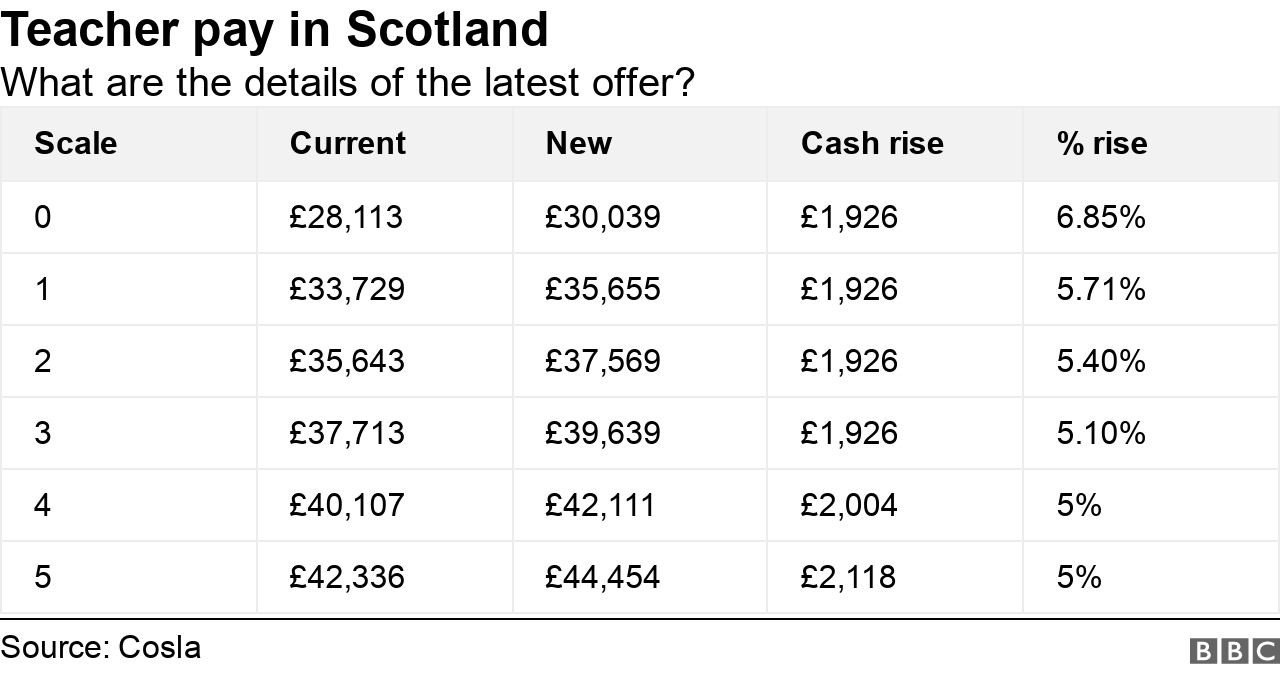
Scottish Labour's education spokesman Michael Marra said the latest announcement was inevitable as the last offer had been rejected "so emphatically".
He said: "The Scottish government has badly mishandled the most critical round of public pay negotiations in decades. Money should have been in the budget for public sector pay deals at the start of the budget year."
Scottish Liberal Democrat leader Alex Cole-Hamilton said the news was a sorry indictment of the government "pushing teachers to the edge".
And the Scottish Conservatives education spokesman Stephen Kerr accused the SNP of a "dereliction of duty" that could have damaging consequences for pupils.
- Published24 November 2022
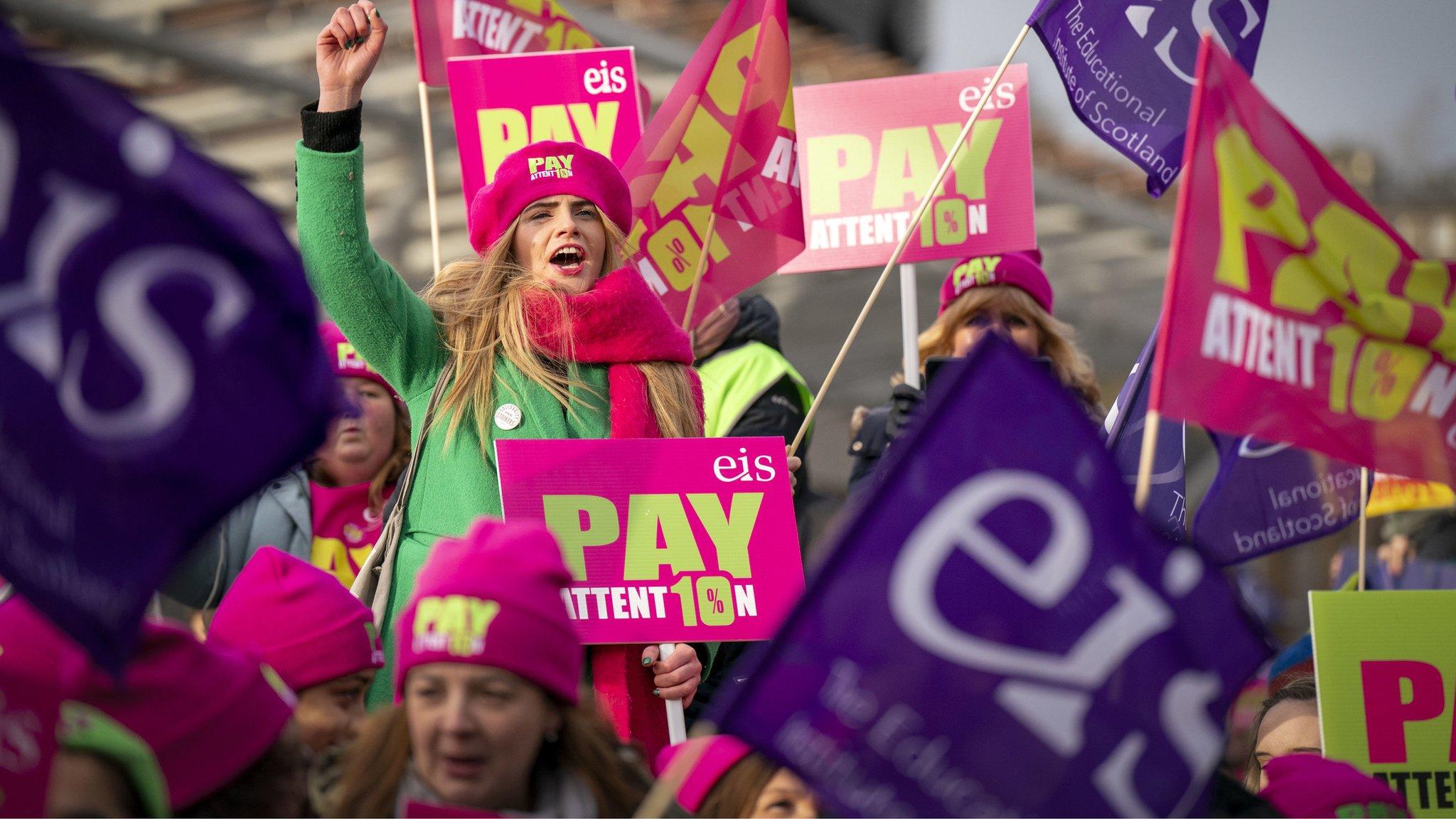
- Published1 August 2023
